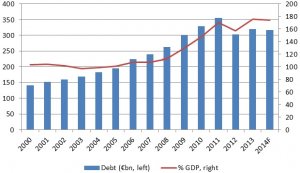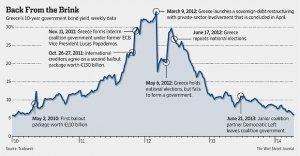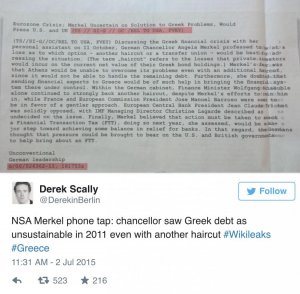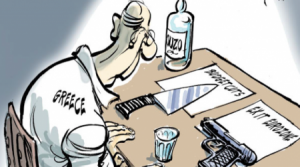H
Hardingfele
Gjest
Spillet som pågår? Eller hva man er blitt innbilt å tro?
In July 2012, Timothy F. Geithner, the United States Treasury secretary at the time, traveled to Sylt, an island off Germany in the North Sea.
Mr. Geithner was there for a meeting with Wolfgang Schäuble, Germany’s finance minister, who would spend his summers at his vacation home on the tiny island.
The topic was Greece.
In the home’s library, the two men spoke about Greece’s prospects and begun discussing ways for the European Union to keep the country in the eurozone.
To Mr. Geithner’s dismay, however, Mr. Schäuble took the conversation in a different direction.
“He told me there were many in Europe who still thought kicking the Greeks out of the eurozone was a plausible — even desirable — strategy,” Mr. Geithner later recounted in his memoir, “Stress Test: Reflections on Financial Crises.” “The idea was that with Greece out, Germany would be more likely to provide the financial support the eurozone needed because the German people would no longer perceive aid to Europe as a bailout for the Greeks,” he says in the memoir.
“At the same time, a Grexit would be traumatic enough that it would help scare the rest of Europe into giving up more sovereignty to a stronger banking and fiscal union,” Mr. Geithner wrote. “The argument was that letting Greece burn would make it easier to build a stronger Europe with a more credible firewall.”
Fast-forward three years. What Mr. Schäuble articulated that summer afternoon to Mr. Geithner is finally taking shape.
http://www.nytimes.com/2015/06/30/business/dealbook/the-hard-line-on-greece.html?smid=tw-share&_r=2
In July 2012, Timothy F. Geithner, the United States Treasury secretary at the time, traveled to Sylt, an island off Germany in the North Sea.
Mr. Geithner was there for a meeting with Wolfgang Schäuble, Germany’s finance minister, who would spend his summers at his vacation home on the tiny island.
The topic was Greece.
In the home’s library, the two men spoke about Greece’s prospects and begun discussing ways for the European Union to keep the country in the eurozone.
To Mr. Geithner’s dismay, however, Mr. Schäuble took the conversation in a different direction.
“He told me there were many in Europe who still thought kicking the Greeks out of the eurozone was a plausible — even desirable — strategy,” Mr. Geithner later recounted in his memoir, “Stress Test: Reflections on Financial Crises.” “The idea was that with Greece out, Germany would be more likely to provide the financial support the eurozone needed because the German people would no longer perceive aid to Europe as a bailout for the Greeks,” he says in the memoir.
“At the same time, a Grexit would be traumatic enough that it would help scare the rest of Europe into giving up more sovereignty to a stronger banking and fiscal union,” Mr. Geithner wrote. “The argument was that letting Greece burn would make it easier to build a stronger Europe with a more credible firewall.”
Fast-forward three years. What Mr. Schäuble articulated that summer afternoon to Mr. Geithner is finally taking shape.
http://www.nytimes.com/2015/06/30/business/dealbook/the-hard-line-on-greece.html?smid=tw-share&_r=2








